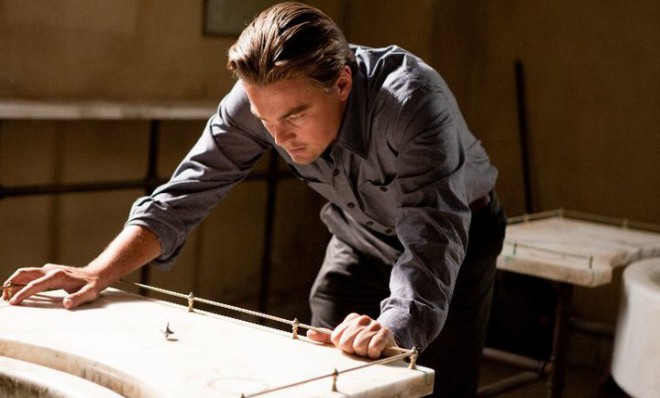The science of implanting false memories
MIT researchers have successfully incepted the minds of mice with events that never happened

A free daily email with the biggest news stories of the day – and the best features from TheWeek.com
You are now subscribed
Your newsletter sign-up was successful
We all have a dubious memory or two that we are convinced is real, even if it never happened. For some the memory is harmless, like the song that played during a first kiss. For others, like courtroom witnesses convinced they saw a suspect only to have their account overturned later by DNA testing, the strange whims of memory can result in real-world disaster.
Which is why a new experiment by neuroscience researchers at MIT's Center for Neural Circuit Genetics is equal parts important and terrifying. Writing in the journal Science, Nobel laureate Susumu Tonegawa outlines how he and his team were able to plant false memories in the brains of mice, tricking them into believing in events that never actually occurred.
The technique they employed is called optogenetics, which allows researchers to manipulate individual brain cells with near-pinpoint precision using a tiny, fiber-optic beam of light. As Ars Technica notes, optogentics "has brought surprising technical advances and changed the way many neuroscientists work."
The Week
Escape your echo chamber. Get the facts behind the news, plus analysis from multiple perspectives.

Sign up for The Week's Free Newsletters
From our morning news briefing to a weekly Good News Newsletter, get the best of The Week delivered directly to your inbox.
From our morning news briefing to a weekly Good News Newsletter, get the best of The Week delivered directly to your inbox.
In this case, Tonegawa suggests that all memories, both real and dreamed, rely on the same basic neural circuitry that can be tampered with. Alok Jha at the Guardian explains:
[Researchers] engineered brain cells in the mouse hippocampus, a part of the brain known to be involved in forming memories, to express the gene for a protein called channelrhodopsin. When cells that contain channelrhodopsin are exposed to blue light, they become activated. The researchers also modified the hippocampus cells so that the channelrhodopsin protein would be produced in whichever brain cells the mouse was using to encode its memory engrams.
In the experiment, Tonegawa's team placed the mice in a chamber and allowed them to explore it. As they did so, relevant memory-encoding brain cells were producing the channelrhodopsin protein. The next day, the same mice were placed in a second chamber and given a small electric shock, to encode a fear response. At the same time, the researchers shone light into the mouse brains to activate their memories of the first chamber. That way, the mice learned to associate fear of the electric shock with the memory of the first chamber. [Guardian]
Then, when researchers placed the mice back in the first chamber, the mice responded in a way that clearly communicated fear: They froze.
"We call this 'incepting' or implanting false memories in a mouse brain," Tonegawa tells Science.
What does that mean for human memory formation? Admittedly, not much for now. At that level of brain activity, "the difference between a mouse and a human are quite small," Edvard I. Moser, a neuroscientist who was not part of the experiment, tells the New York Times. "[But] what I find fascinating about this is that you actually can point to a physical substrate to memory," or an engram. It's like pointing to a specific spot in the brain, and being able to say, "That is the memory."
A free daily email with the biggest news stories of the day – and the best features from TheWeek.com
If the thought of being implanted with a fake memory creeps you out, that's totally understandable. But Tonegawa says his research isn't malicious, Inception-inspired Noltan-ites be damned.
Instead, Tonegawa tells the Times, the hope is that his advances will illustrate just "how unreliable human memory is." Especially in the courtroom.
-
 The world’s most romantic hotels
The world’s most romantic hotelsThe Week Recommends Treetop hideaways, secluded villas and a woodland cabin – perfect settings for Valentine’s Day
-
 Democrats push for ICE accountability
Democrats push for ICE accountabilityFeature U.S. citizens shot and violently detained by immigration agents testify at Capitol Hill hearing
-
 The price of sporting glory
The price of sporting gloryFeature The Milan-Cortina Winter Olympics kicked off this week. Will Italy regret playing host?